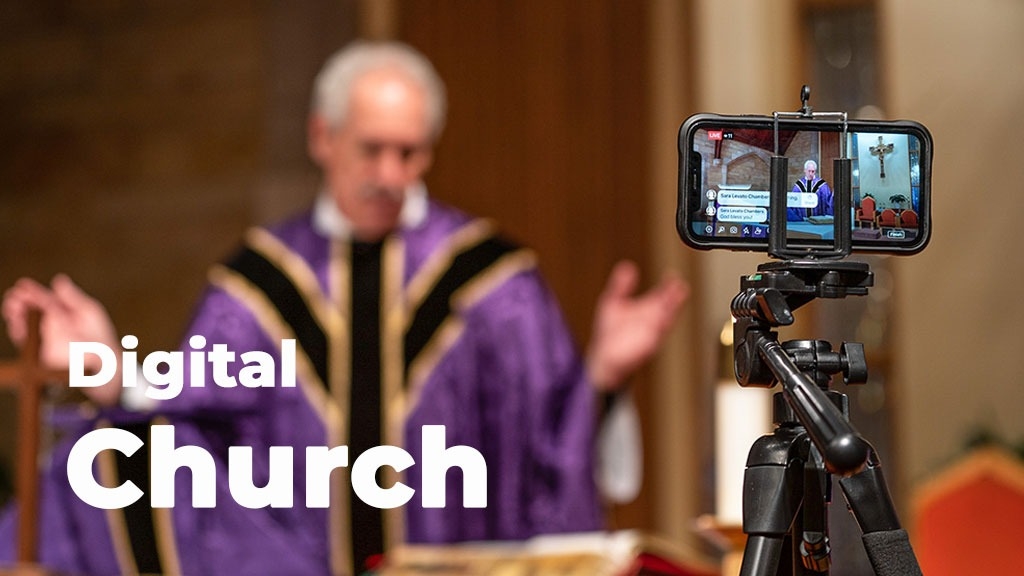"I haven't been to physical church in months, but I feel more connected than ever." This surprising statement reflects a growing reality: digital church isn't just a pandemic necessity anymore – it's becoming a legitimate expression of Christian community for many believers. As Hebrews 10:24-25 reminds us, "And let us consider how we may spur one another on toward love and good deeds, not giving up meeting together, as some are in the habit of doing, but encouraging one another," though the meaning of "meeting together" continues to evolve.
The question facing many churches isn't whether to have an online presence, but how to make that presence truly meaningful. Live-streaming services is just the beginning. Today's digital churches are creating online small groups, facilitating virtual prayer rooms, and even conducting baptisms through local representatives while the community watches online. These practices echo Paul's words in 1 Corinthians 12:27: "Now you are the body of Christ, and each one of you is a part of it" – even when that body meets in digital spaces.
This shift raises important questions: Can online church fully replace in-person gathering? How do we ensure digital connections lead to real spiritual growth? What about communion? These aren't easy questions, but they're ones we need to engage with thoughtfully rather than dismiss. After all, Jesus promised, "For where two or three gather in my name, there am I with them" (Matthew 18:20), without specifying the medium of gathering.
The early church faced similar challenges of connection across distance. Paul maintained relationships with churches through letters, often expressing his desire to be present while acknowledging the reality of physical separation: "For though I am absent from you in body, I am present with you in spirit" (Colossians 2:5). Today's digital tools give us even more ways to connect, encourage, and disciple one another across distances.
Churches are finding creative ways to facilitate genuine community online:
-
Virtual small groups that meet regularly for Bible study and prayer
-
Digital prayer walls where members can share requests and updates
-
Online mentoring relationships connecting mature believers with newer Christians
-
Livestreamed worship services with interactive elements
-
Social media platforms for daily encouragement and connection
However, the digital church also presents unique challenges. How do we ensure genuine accountability in virtual spaces? How do we minister to the physical needs of our community when we're not physically present? As James 2:15-16 challenges us, "Suppose a brother or a sister is without clothes and daily food. If one of you says to them, 'Go in peace; keep warm and well fed,' but does nothing about their physical needs, what good is it?"
The key is to focus on the essential elements of church – worship, discipleship, community, and mission – and find creative ways to facilitate these online while acknowledging both the opportunities and limitations of digital spaces. This might mean hybrid approaches that combine digital and physical presence, or developing new models of ministry that leverage technology while maintaining personal connection.
Looking ahead, the digital church will likely continue to evolve. Virtual reality, artificial intelligence, and other emerging technologies may offer new ways to create meaningful Christian community. Yet through all these changes, the core mission remains the same: "Go and make disciples of all nations" (Matthew 28:19).
For church leaders and members alike, the challenge is to embrace the opportunities of digital ministry while ensuring it serves rather than replaces genuine Christian community. As Peter wrote, "Above all, love each other deeply" (1 Peter 4:8) – whether that love is expressed through a screen or in person.
The digital church isn't about replacing physical gathering but expanding our understanding of how the body of Christ can connect, grow, and serve together. When approached thoughtfully and intentionally, technology can become another tool for fulfilling our calling to be "built together to become a dwelling in which God lives by his Spirit" (Ephesians 2:22).




Comments